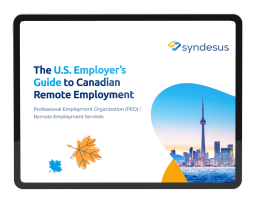So you need to build an engineering team in the Bay Area, New York or Boston. Perhaps you have Series B or Series C funding and need to double the size of the engineering team as you scale your product and company. The competition for engineers is tight – other well-funded startups, unicorns, the tech elite (FB, Google, etc) are also hiring engineers. How and where are you going to get the people you need?
If you decide to build your team locally, you’ll face many challenges. I’ve outlined some below as well as a solution that you should NOT consider. Building a remote development team may be the best solution for you and one you may not have considered before.
Cost of Engineer Salaries
What a relief, you found a great engineer who is willing to sign your offer letter and join your team. Now you have to pay them! And every time they meet with their friends, the salary and benefits package you offer is being discussed, judged and compared to other potential options.
Pick your favorite reason for high wages for engineers – Shortfall of available comp-sci grads, super funded startups and unicorns, Google paying premium wages, etc. Whatever the reason, you will pay more for engineers than ever before, and the wage inflation will continue next year.
Variety of Choices + Shortage of Engineers = Increased Turnover
Call it the Tinder Effect: With so many choices, you never really have to commit.
Every good engineer is bombarded by tech recruiters and friends in tech who are offering them choices: Fascinating new startups solving complex problems, a skunkworks team at Google/Tesla/Apple that is hiring only the best, a newly funded startup with $50M from Andreessen-Horowitz or Sequoia that could change the world, etc.
If your company is going thru tough times on the road to product-market fit, or if you pivot in a direction that is not pleasing to your engineers, they can simply leave. There is no reason for them to suck it up and go the distance when they are unhappy with a situation and other attractive offers exist. There are just too many options.
Unaffordability for Families in Silicon Valley
We all know the best and brightest congregate in the tech meccas like Silicon Valley, New York, and Boston. It’s one thing to live in the Bay Area as a young engineer and share an apartment or house with 5 roommates. But if you have a family and want to live in a good school district, you are quickly into the seven-figure range for a house.
The best engineer for your company may have done the math and moved to a less expensive part of North America. Or not even made the journey after hearing horror stories from friends.
Should You Outsource?
Many companies might think the solution lies in outsourcing their engineering team to India or Ukraine. Sounds like a good idea except that outsourcing doesn’t work well for startups. And here’s why.
We all know there is good talent outside the US But there are challenges associated with different languages, different communication styles, and different time zones. And depending on where you look, there are also challenges with quality and turnover/churn.
But what about the flaw of the outsourcing model itself – hiring engineers who don’t work for your company, but perform the most critical tasks (building your product!) for your startup. You are setting up a relationship with a 3rd party, who gives you access to their pool of engineers. They get your business by promising high-quality engineering talent at a low price. But churn is built in because engineers will leave over time to improve their wages.
Outsourcing breaks the tie and cohesion between startup and employee. Outsourced engineers don’t have your stock options, benefits package, or company culture. And all the knowledge they gain about your industry and your product can quickly walk out the door because of lack of alignment between startup and engineer.
What to Do?
A solution that might make the most sense is to build remote engineering teams here in North America, but outside of the tech meccas. Close enough that you can fly the team in and co-mingle them with your current team, but far away enough that they aren’t asking for ridiculous budget-busting salaries. Close enough that they share the same language, culture, and time zone, but far away enough that they view the salary you pay them as providing a very high quality of life for them and their family. Close enough that you can integrate them into your company culture and legally give them US stock options, but far away enough from the dozens of recruiter calls every day with enticements of greener pastures.
At Syndesus, we help US companies recruit and employ remote teams in Canada. Check out our Recruit Canadian Talent page to find out more information.




